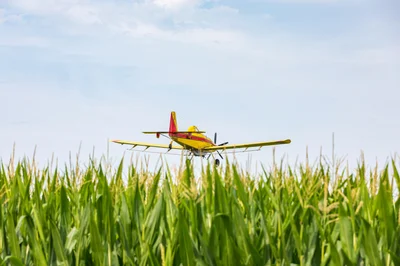Another look at farm safety

Back in the springtime I wrote about farm safety and the mindset on how we are best to approach constantly improving our skills and focus to reduce every day jobs becoming inherently dangerous if multiple factors begin to stack up against our favour.
Sadly around Christmas time there was a pretty horrific run of people having accidents around New Zealand involving ATV and UTV vehicles on farms.
If you were one of those affected or are family or friends close to one, my thoughts are with you.
What was good to see during that time was many people coming together in support of victims and their families & friends, and to urgently remind others to be more cautious as we all go about our business to hopefully prevent further tragedy happening. To those that stepped up thank you.
Predictably though there was the usual patterns that do need to change in how we react to these accidents.
The first is reporting by media, almost every time there’s an accident involving a vehicle, key details are incorrect.
It’s almost as if the default response is to refer to any crash as involving an ATV and a poorly chosen stock image also adds poor context.
The second is the calls come from some working in the farm safety space that repeat their usual hand wringing and suggesting for either outright bans of machines or to spend money on bolt on attachments (that manufacturers and other experts discourage), or majorly restrict where and how machines can be used on a farm. While all good intentioned I think when we boil all that down that mindset is only putting a band aid on the core issue and isn’t going to bring the fundamental culture shift to make some real progress.
As an example I heard of someone who had rolled a UTV (side by side) on a hill in a pretty tame grass paddock with the key factor being wet grass.
The machine was equipped with a key that limits the top speed of the UTV and the experienced farm worker ended up losing traction, going into a slide and because they couldn’t fully accelerate out of it the result was a roll over.
Thankfully aside from some damage to the UTV there was no injuries, however they felt given their skill and reaction the roll over would have been avoided if the safety device wasn’t limiting.
One of the other discussions I read was from a sharemilker that was going to restrict their farm speeds even further and where motorbikes were allowed to go and was lamenting they couldn’t get staff sent to training courses until well after Christmas. The solution here was to all come together on farm and train each other on the specific areas of concern, it’s one of our collective duties as an industry to always be upskilling ourselves and each other.
Not just for where we work currently but for where staff and even managers may end up in the future.
A rising tide lifts all ships!
As an industry another area we can improve on would be to implement a system where all serious accidents are investigated and reported, with all causes identified so operators can implement any findings and learnings to all move forward.
The status quo is that if anything all we hear is how big the fine was from Worksafe after they crucify the farm owner in court down the track.
If we look at the Transport Accident Investigation Commission (TAIC) which does this for the Aviation, Marine and Rail industries; their mission is to determine the circumstances and causes of accidents with a view to avoiding similar occurrences in the future, rather to ascribe blame to any person.
Their website is a great resource as it accurately reports all accidents lodged with basic details, and then down the track once an investigation is completed. Particularly in the case of Agricultural Aviation they’ve been instrumental in reducing accidents over the years as it kept pilots, aircraft, techniques and risk management improving.
by Duncan Humm, NZ Farming

